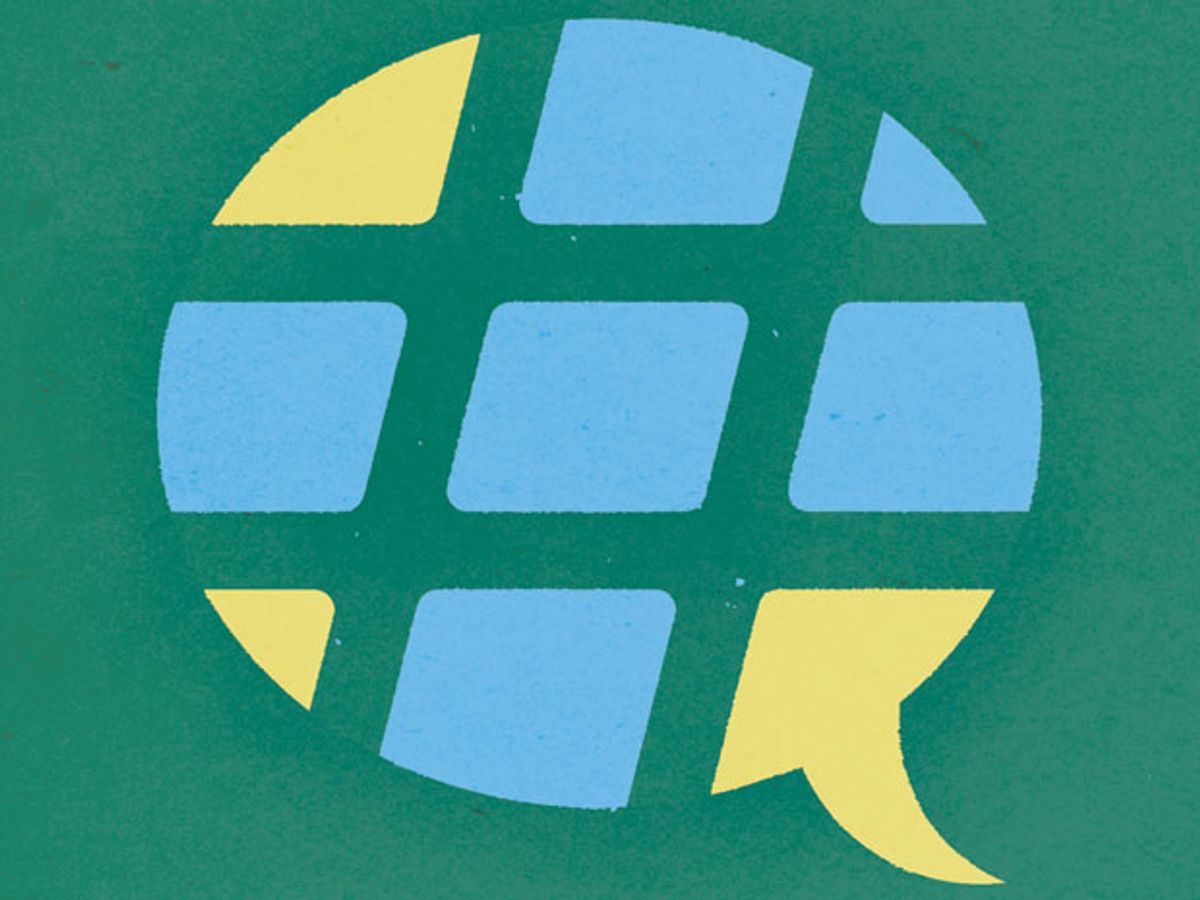This was the year when the hashtag became a ubiquitous phenomenon in online talk. In the Twittersphere and elsewhere, hashtags have created instant social trends, spreading bite-sized viral messages on topics ranging from politics to pop culture.
—Ben Zimmer, chair of the New Words Committee of the American Dialect Society

Back on 23 August 2007, Google interface designer and BarCamp cofounder Chris Messina posed a fateful question on Twitter: How do you feel, he asked, “about using # (pound) for groups. As in #barcamp [msg]?” It was the first use of a hashtag, which is a term preceded by the hash (or pound or number) sign [#] that serves to group similar tweets. People talking about, say, the World Economic Forum, might include #Davos or #WEF in their tweets. Searching Twitter for a hashtag returns all the recent tweets that include it.
In the nearly six years since this humble beginning, hashtags have come a long way. Twitterers have applied it in all sorts of ways. For example, the rhetorical hashtag is used to clarify, comment on (often ironically or sarcastically), or shade the meaning of a tweet. For example, if someone complains about some relatively unimportant issue, but then adds the hashtag #FirstWorldProblem (meaning a complaint that could be experienced only by a privileged person living in a wealthy country), then we know the person gets how trivial it is.
The hashtag game is a pastime that uses special hashtags called, appropriately, gametags to create Twitter-based contests. For example, in early 2012 an unknown hashtag gamer came up with #FiveWordTEDTalks, which asked people to create TED Talks consisting of just five words. (My favorite: “Computers! Wow, right? Computers! Geez.”) A popular variation on this theme is to play with existing cultural artifacts. In the hashtag game #MedicalFilms, for example, Twitter came up with film titles like Harry Potter and the Sorcerer’s Kidney Stone and 12 Angry Patients. Some of these are so popular they end up on Twitter’s Trending chart and so become the hashtag du jour.
On a more serious note, hashtag activism uses hashtags to promote projects or causes (particularly when it requires no other action from people, making it a form of slacktivism, which was discussed in this column in June 2011). So you personally might not be able to do much about, say, the gun laws in the United States, but you can certainly add the hashtag #GunControlNow—or its antithesis, #SecondAmendment—to your tweets.
No human endeavor is beyond the reach of marketers these days, so no one is surprised by hashtag marketing, which promotes a company, product, or brand with a hashtag. McDonald’s recently tried to burnish its brand by creating a hashtag (#McDStories) with which people could share heartwarming times spent in McDonald’s restaurants around the world. More subversively, marketers will attempt to promote a company-friendly hashtag in ways that appear to come from ordinary citizens, simulating a grassroots hashtag (or grasstag).
The corollary to the above is, of course, that no human endeavor is beyond snark these days, so lots of people enjoy hijacking a corporation’s marketing hashtag to mock the company, a practice known as hashjacking or tagjacking. A corporation’s Twitter hashtag, when used to bash the company’s products, becomes a bashtag. The #McDStories hashtag was only a few hours old before it found its way into tweets that described McDonald’s-related horrors.
Given all this, and given that hashtags are now often seen “in the wild” (on other social networks, such as Facebook, and even off-line on T-shirts), it’s no wonder that hashtag won out as the American Dialect Society’s Word of the Year for 2012, beating out solid contenders such as fiscal cliff, Gangnam style, and YOLO (You Only Live Once). So whether you look at it technically, culturally, or linguistically, the hashtag is, as Charlie Sheen might say, #winning.
This article originally appeared in print as "Hashtag, You’re It ."
